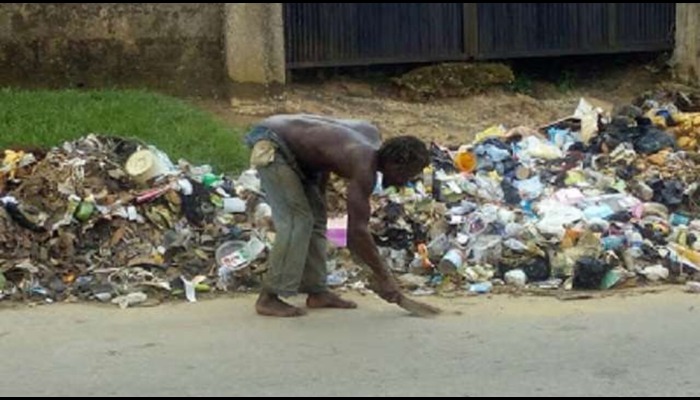On most days, commuters along the Awka–Enugu Expressway barely gave the madman a second glance. He was there, slouched on the roadside, shuffling with uneven steps, muttering words no one could quite piece together.
His shirt was often unbuttoned, his hair left unkempt. To the casual observer, he was another drifter, one of the many Nigerians battling unseen demons on the streets. People learned to look past him.
But Patrick Ojele was never just a man lost to the world. Police now say the 43-year-old was hiding in plain sight, performing the part of a madman while running a clandestine cannabis farm right in the heart of Awka, the Anambra State capital.
His act unraveled on September 17. A routine police patrol spotted him along the expressway near Ngozika Estate, and suspicion gave way to questioning. What followed was the unmasking of a double life that had gone unnoticed for more than two years. Ojele, still feigning instability, led officers to his secret farm, tucked away and teeming with cannabis sativa ready for harvest.
“The arrest reflects our renewed strategy of cutting off supplies to those who embolden cultists and violent offenders,” Police spokesman SP Tochukwu Ikenga said, framing the discovery as more than a one-off bust. Commissioner of Police Ikioye Orutugu has since handed the case to the Special Anti-Cultism Squad in Enugwu-Ukwu, with instructions to probe the chain of buyers and dismantle what appears to be a wider distribution network.
Yet beyond the police statement, the story of Ojele raises questions about perception, neglect, and how much of the extraordinary hides in the everyday. For two years, a man played out a theatre of madness in full view of a bustling city, and no one looked close enough to see the pattern. Was it the perfect camouflage in a society where the mentally ill are routinely ignored? Or a daring act of deception that preyed on collective indifference?
Awka residents now recall the figure many had dismissed as a nuisance. Only now do they wonder: what else did they miss while rushing past? This about invisibility as a shield, and about the thin line between survival, ingenuity, and illegality in a country where hustlers constantly reinvent the rules.
For Ojele, the disguise bought him two years of unchecked cultivation. For the city, it is a reminder that sometimes, the most ordinary sights conceal the most unexpected truths.









